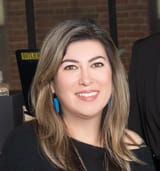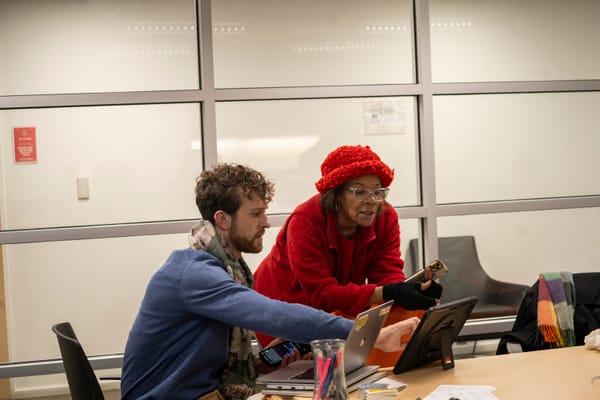You should probably join this group

Big day. We're celebrating the public launch of News Futures!
The people and work now gathered under the News Futures name have been my most consistent and reliable source of creative energy, support, inspiration, and collaboration since 2018.
Everyone involved then was like me; too much work, few connections, bare budgets. It understandably took us a few years to find the time and support to make these collaborations more formal and structure them for growth.
Now anyone can join News Futures, and I hope you do. Our statement of purpose is simple:
“We believe that everyone should have access to reliable news and local information that is actionable and relevant to their lives. That’s why we’re building a future for news that is service-oriented, participatory, and reparative.”
Sounds great, right? And like a lot of work. That's why this thing is a d0-ocracy. The entry point to News Futures is through the charter and the working groups. We draw on experiences from our day jobs, but push it further outside those constraints. It's nerdy in the best way.
If you felt excited by the information needs hierarchy introduced in Is Your Journalism a Luxury or a Necessity, hopeful after you found the conversation about the need for more care in journalism, or accompanied by the Media Power Collaborative, or the Roadmap for Local News, you're already familiar with News Futures' work.
Darryl Holiday has been managing News Futures part-time for the past few years and the critical person transforming everyone's good ideas and intentions into a well-organized and strategic network. News Futures would not be launching without him, Sierra Sangetti-Daniels and Megan Lucero.
Darryl wrote on LinkedIn that this group is not "a membership organization, an intermediary, or a newsroom. We don’t have social media accounts, we’re not currently fundraising and we’re not scaling for the sake of growth." Instead, "News Futures is a structured community of practice—where any aligned “do”-er can become a steward and directly shape our work."
It's an incredible vision to come out of what was essentially a Hail Mary pass I made six years ago to other local news folks.
I was two years into Outlier at that time. A funder had just given me a grant of a little more than $100,000, our biggest grant yet and one that could see me through another year. I felt relief until the funder said I would need to use some of that money to come up with a convincing case for Outlier's sustainability.
I had been hearing “sustainability” being used, inscrutably, for years. It felt like code for something else, since a one-person local news start up built to serve one of America's poorest cities on an annual budget of under $100K is so obviously not on that path. “The math doesn't math," as Candice Fortman would say. This was a market failure, not a personal one.
The obsession with sustainability was threatening to derail the more radical conversation some of us were trying to start; that news organizations should be built to be valuable and responsive to the needs of all people first. Sustainable newsrooms were not necessarily high-quality ones, and vice versa.
I got permission from my funder to spend some of their money bringing a few people together to approach the sustainability question. I came up with a list of people I didn't know well but thought were kind, smart, and hard-working. I was not well-connected to other people working in local news around the country, so it was a leap of faith on all our parts. It turned out we were all desperate for more collaborators, and we have been working together since.
That first gathering was solidarity and generosity in action. We decided to push funders more intentionally on questions about responsiveness and value, even if we were afraid it might make us less attractive grantees. Because we were mostly on the same page about what better news would look like, we also understood we were not in competition with each other but with the status quo. That made it easy for us to promise to speak up for each other when we were asked to speak publicly, or when one of us was being invited into a room with funders. We were incredibly honest about our challenges and bigger dreams, paving the way for us to write together, share ideas, contacts, and even money.
Darryl offered to pull together another gathering more than a year later. Because I was desperate, I had organized a tactical gathering. Darryl was ready to move us into a generative phase. What a fantastic idea. It was still slow-going. The gatherings and work done in between was an unpaid side-hustle for the already overcommitted. It's no wonder it took six years and people well beyond that initial group to get it into shape for more public participation.
It's ready now. Go for it. Transform news and each other for the better. If you have questions, I'm happy to answer them. Or, you can sign up for this info session on Feb. 26th.
Happy News Futures Day!




